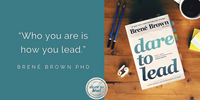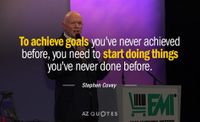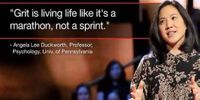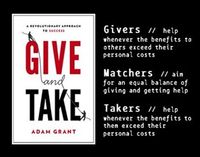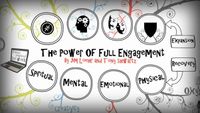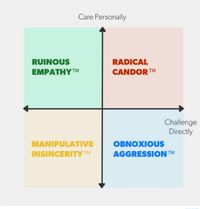Nonprofit Leaders
Leadership Resources
Developing leaders in nonprofit organizations and Head Start programs is difficult. Limited resources of money, time, and energy are obstacles to developing true leaders. Instead, leaders put out fires, engage in direct services, and work tirelessly to make a better world.
The following resources are an eclectic set of titles—my picks of the best resources for nonprofit and Head Start leaders. This is not an exhaustive list. I have included some classic works as well as newer research. My bias is toward positive psychology that connects personal vision to organizational purpose and mission. I like work that focuses on the whole person.
I’ve included a list of resources that address the specific needs of individuals who continue to be excluded from leadership positions and discriminated against in the workplace. I have also included books by President and First Lady Obama, and I end with a list of books that promote equity and inclusion in workspaces.
I hope you enjoy reading these.
15 Books to Read
The Happiness Advantage: The Seven Principles of Positive Psychology That Fuel Success and Performance at Work: by Shawn AnchorAdd an item
This is the first book I read that focuses solely on happiness and, more specifically, on strategies for happiness. Like the other books on this list, it prompted a powerful shift in my mindset. Shawn Anchor begins with the startling (at least to me) concept that success doesn’t create happiness, but that happiness leads to productivity, better health, and deeper relationships.
A deep-rooted belief in your own ability to change is a central part of happiness, and the best leaders focus on the potential of each team leader.
According to Anchor, even small steps promote happiness. Happiness boosters include meditation, exercise, intentional kindness, positive surroundings, and use of a signature strength. Anchor also points out that spending money on experiences rather than on things encourages long-term happiness. In this book, Anchor describes changing your mindset to focus on the excitement of meeting challenges and circumventing barriers.
Link to website:
Link to TED Talk:...
moreDare to Lead: by Brené Brown
Dare to Lead provides practical strategies to grow and develop as humane citizens in an inclusive and positive work culture. Brown’s research and writing are helpful and inspiring. I would recommend any and all of her books. Brown’s research and work on vulnerability, shame, courage, and resilience are too important to ignore. In Dare to Lead, Brown guides leaders to engage in bravery through vulnerability and shows us how to “show up with your whole self.”
Other books you may like:
1. Daring Greatly: How the Courage to Be Vulnerable Transforms the Way We Live, Love, Parent, and Lead
2. The Gifts of Imperfection
3. Braving the Wilderness: The Quest for True Belonging and the Courage to Stand Alone
4. Rising Strong: The Reckoning. The Rumble. The Revolution
5. Present Over Perfect: Leaving Behind Frantic for a Simpler, More Soulful Way of Living
6. I Thought It was Just Me: Women Reclaiming Power and Courage in a Culture of Shame
moreThe 7 Habits of Highly Effective People: Revised and Updated 30th Anniversary Edition: by Stephen Covey.
Stephen Covey once said, “To achieve goals you’ve never achieved before, you need to start doing things you’ve never done before.” In his book The 7 Habits of Highly Effective People, Covey provides new ways of doing things for new achievements. This book is one of the best-known resource for leaders, and it outlines 7 habits: be proactive, begin with the end in mind, put first things first, private victory to public victory, think win-win, seek first to understand, then to be understood, synergize, and sharpen the saw.
One concept from 7 Habits, the concept of empathetic listening, resonated with me. The idea is to see the world the way the other person does, understanding their paradigms and feelings on an intellectual and emotional level. This insight leads me to ask, “What does this person need right now?” It also has a companion workbook and is ideally suited for working with teams.
Link to further resources:
...
moreGrit: The Power and Passion of Perseverance: by Angela Duckworth.
Meeting challenges and surmounting barriers rely on what Angela Duckworth calls grit and Duckworth's research examines how to develop grit. Grit encompasses passion, perseverance, and resilience. Passion is your connection to your purpose. Perseverance is the ability to transform pain into learning opportunities. Resilience is bouncing back, reflecting your ability to keep trying. Duckworth clearly explains that grit is not a fixed character trait, but a skill to be learned through practice—more practice while connecting to your purpose.
Link to website:
Link to Character Lab:
Link to TED Talk:
https://www.ted.com/talks/angela_lee_duckworth_grit_the_power_of_passion_and_perseverance
moreMindset: The New Psychology of Success: by Carol S. Dweck.
One way to enhance your team’s performance is to focus on a growth mindset. Carol Dweck argues that some people believe that they succeed based on natural gifts that they either do or don’t have. Other people associate their success with hard work, continued pursuit of a goal, or even failure. People in this second group believe that the ability to achieve is always in their reach if they work hard enough.
I became interested in Dweck’s research on motivation and mindset as I explored research on how children learn. I quickly realized how this applied to adults. According to Dweck, individuals with a fixed mindset believe in innate characteristics such as talent or intelligence. Individuals who embrace a growth mindset believe that purposeful effort can improve their skills. A fixed mindset says, “I’m not a math person.” A growth mindset says, “I haven’t tried very hard to learn calculus.”
It’s important what we say to children. If we praise abilities (talent, intelligence), we unintentionally encourage passivity in the face of harder challenges. If we praise effort...
moreGive and Take: by Adam Grant.
Adam Grant defines three different styles of leaders: 1) givers, 2) takers, and 3) matchers. Matchers try to create a balance between giving and taking. Most of my life, I thought I would be successful as a “matcher.” Grant convinced me that giving is the most successful reciprocity relationship.
Grant argues that reciprocity cannot be governed by self-interest and that the best leaders are givers. Givers focus on what others need from them and are generous, sharing energy, time, knowledge, and ideas with all. Givers create a safe and positive environment for learning, communicating, and creating. Grant also notes that givers need to set boundaries as they work with others, building social support networks while enhancing their team.
Other equally useful books by Adam Grant include:
1. Originals: How Non-Conformists Move the World
2. Think Again: The Power of Knowing What You Don’t Know
3. Option B: Facing Adversity, Building Resilience, and Finding Joy
As a bonus, Adam Grant’s reading lists are also a wonderful resource.
Link to...
moreImpact and Excellence: Data-Driven Strategies for Aligning Mission, Culture and Performance in Nonprofit and Government Organizations: by Sheri Chaney Jones.
Impact and Excellence: Data-Driven Strategies for Aligning Mission, Culture and Performance in Nonprofit and Government Organizations: by Shei Chaney Jones
This book is different from the rest in that it does not speak to leadership development as such. Impact and Excellence is a resource for leaders, especially in nonprofit organizations, Head Start programs, and government organizations. Chaney Jones’s work discusses the work cultures of nonprofit and government organizations, and she guides leaders to clarify the mission and use data to enhance teamwork and outcomes. She writes that sustained success is more than collecting data and running reports. It encompasses the 5 Cs of implementing impact and excellence:
1. Making changes to organizational culture and leadership
2. Clarifying the organizational mission
3. Measuring the right things and capturing impact
4. Communicating the results effectively
5. Making data-informed changes and...
moreThe Power of Full Engagement: Managing Energy, Not Time, Is the Key to Higher Performance and Personal Renewal: by Jim Loehr and Tony Schwartz.
The Power of Full Engagement: Managing Energy, Not Time, Is the Key to Higher Performance and Personal Renewal: by Jim Loehr and Tony Schwartz
Jim Loehr and Tony Schwartz, drawing on research with high-performing CEOs and elite athletes, demonstrate how managing energy, not time, is central to ensuring high performance and creating a healthy, happy, and balanced life. Loehr and Schwartz describe how to make life changes using the purpose-truth-action process. The first step is defining your purpose or how you align your efforts with your core values. The second step, truth, consists of examining data about your daily life. Such data includes physical exams, self-assessment, and similar questionnaires completed by friends and family. The third step then builds a personal development plan grounded in positive energy rituals. The book details how to enhance physical, emotional, mental, and spiritual energy. The balancing of stress and recovery (familiar to all athletes) is central to creating positive energy rituals.
Link to website for Jim Loehr:
...
moreThe Human Element: by Loran Nordgren and David Schonthal.
The Human Element: by Loran Nordgren and David Schonthal
The Human Element is a guidebook for introducing new ideas and successfully implementing these innovations, despite inevitable resistance. Nordgren and Schonthal use the metaphor of fuel and drag from airplane flights. Airplanes need fuel to fly, and The Human Element describes how most of us increase the fuel or advocate for change based on values. Just as an airplane needs to reduce drag to lift off the runaway, advocating for change also needs to address the four frictions that create drag. The four frictions include inertia (how large the change is), the implementation effort (how hard it is to change), reactance (is there pressure to change?), and emotion (the negative feelings that accompany change). Success, according to Nordgren, relies on identifying frictions “You’re like a detective. You’re analyzing the circumstance to understand the frictions operating against you. And once you identify those frictions, in many cases, the solutions become self-evident.”
Links to websites:
...
moreDrive: by Dan Pink.
Leaders try to reward teams with incentives and punish them with (negative) consequences. Dan Pink draws on social science research to understand how to truly motivate high performance and satisfaction at work and at home. Rather than the reward/punishment approach, Pink describes how three factors, mastery, autonomy, and purpose, motivate high performance. Finally, Pink shows leaders how to shape opportunities for teams to become truly engaged in their work, become connected to their purpose, and fulfill their potential.
Other books by Dan Pink:
1. To Sell is Human
2. A Whole New Mind
3. When
4. The Power of Regret
Link to website:
Link to Ted Talk:
https://www.ted.com/talks/dan_pink_the_puzzle_of_motivation
moreStrengths-Based Leadership: Great Leaders, Teams, and Why People Follow Them: by Tom Rath and Barry Conchie.
Strengths-based leadership is a management style focused on recognizing and leveraging individual strengths to achieve organizational goals. It emphasizes the positive aspects of employees, such as their skills, knowledge, and experience, rather than trying to “fix” their deficits.
Written by Tom Rath and Barry Conchie, Strengths-Based Leadership: Great Leaders, Teams, and Why People Follow Them identifies three strategies to become a more successful leader: 1) know your strengths and invest in your team’s strengths, 2) get the right people with the right strengths on your team, and 3) understand the basic needs of your team. Gallup Clifton StrengthsFinder is an excellent place to begin identifying your strengths and those of your team.
Other books by Tom Rath:
1. It’s Not About You
2. How Full Is Your Bucket?
3. Wellbeing: The Five Essential Elements
4. Eat Move Sleep
5. Are You Fully Charged?
6. Vital Friends
7. Life’s Great Question
Link to website:
...
moreRadical Candor: by Kim Scott.
Radical Candor: by Kim Scott
In Radical Candor, Kim Scott uses research, her extensive experience as a leader in the tech world, and case studies to help create effective teams. Scott describes the importance of caring personally while also directly challenging ourselves and our team. Scott explains how leaders need to continuously seek feedback to improve leadership. Just as importantly, Scott argues that leaders need to provide guidance and feedback to help others grow.
She describes her first experience with “Bob.” “Bob” was an employee with skills, recommendations, and a generous manner, but he did not perform well. Scott did not provide feedback or guidance, often redoing his work (I am guilty of this!). In the end, she had to let him go, and he asked, “Why didn’t you tell me?” Scott then provides strategies to provide the criticism necessary to ensure that employees grow.
This is an important book, and while directed at business organizations, it may be especially effective for nonprofit organizations and Head Start programs where leaders are...
moreStart with Why: How Great Leaders Inspire Everyone to Take Action: by Simon Sinek.
I have grown so much from discovering Simon Sinek’s work. Anything you read by him improves your day (and your life). I have chosen to highlight Start with Why: How Great Leaders Inspire Everyone to Take Action. Most of us look at what we do and how we do it. Sinek challenges us to go deeper—to make explicit our true calling. Our “why” is the reason we get out of bed in the morning.
Much of the reading on this list is about aligning core values and your purpose with your day-to-day work. Start with Why is an extraordinary work of art that helps individuals and teams find their purpose. Sinek’s work is always about social connections and teamwork. Find Your Why is a practical guide for discovering purpose for you and your team.
Other books by Simon Sinek include:
1. Leaders Eat Last: Why Some Teams Pull Together and Others Don’t
2. Together Is Better: A Little Book of Inspiration
3. Find Your Why: A Practical Guide for Discovering Purpose for You and Your Team
4. The Infinite...
moreCompassionomics: The Revolutionary Scientific Evidence That Caring Makes a Difference: by Stephen Trzeciak and Anthony Mazzarelli.
Compassionomics: The Revolutionary Scientific Evidence That Caring Makes a Difference: by Stephen Trzeciak and Anthony Mazzarelli
Compassionomics is an examination of the importance of compassion in the health care industry. Physician/scientists Stephen Trzeciak and Anthony Mazzarelli present compelling evidence that compassion is a key factor in patient health. Trzeciak and Mazzarelli argue that compassion is dramatically beneficial for patients with a wide variety of health conditions and, just as importantly, reduces stress among health care workers. Compassion also promotes cost savings to hospitals.
Trzeciak and Mazzarelli present compelling evidence that 40 seconds of compassion can save lives. “Compassionomics provides the evidence that one simple tool, compassion, can affect not only the outcomes for our patients, but also the financial health of our organizations and the well-being of our providers” – Donald Berwick, M.D. (President Emeritus, Institute for Healthcare Improvement).
This is a truly excellent presentation of scientific research on...
moreThe Book of Joy: Lasting Happiness in a Changing World: by the Dalai Lama, Desmond Tutu, and Douglas Carlton Abrams.
The Book of Joy: Lasting Happiness in a Changing World: by the Dalai Lama, Desmond Tutu, and Douglas Carlton Abrams
If any book should be required reading, this is it.
moreBooks By and For Historically Excluded Leaders
Minority Leader: How to Lead from the Outside and Make Real Change: by Stacey Abrams.
Life in Motion: An Unlikely Ballerina: by Misty Copeland.
Expect to Win: 10 Proven Strategies for Thriving in the Workplace: by Carol Harris.
I’m Not Yelling: A Black Woman’s Guide to Navigating the Workplace: by Elizabeth Leiba.
The Work: Searching for a Life That Matters: by Wes Moore.
It Worked for Me: by Colin Powell.
Playing the Game Without a Coach: How Courage, Resilience, and Forgiveness Helped One Man Seize the American Dream: by Benjamin Raymond.
The Year of Yes: by Shonda Rhimes.
Race, Work, and Leadership: New Perspectives on the Black Experience: Edited by Laura Morgan Roberts, Anthony Mayo, and David Thomas.
My Beloved World: by Sona Sotomayor.
Breaking Through: The Making of Minority Executives in Corporate America: by David Thomas and...
more

